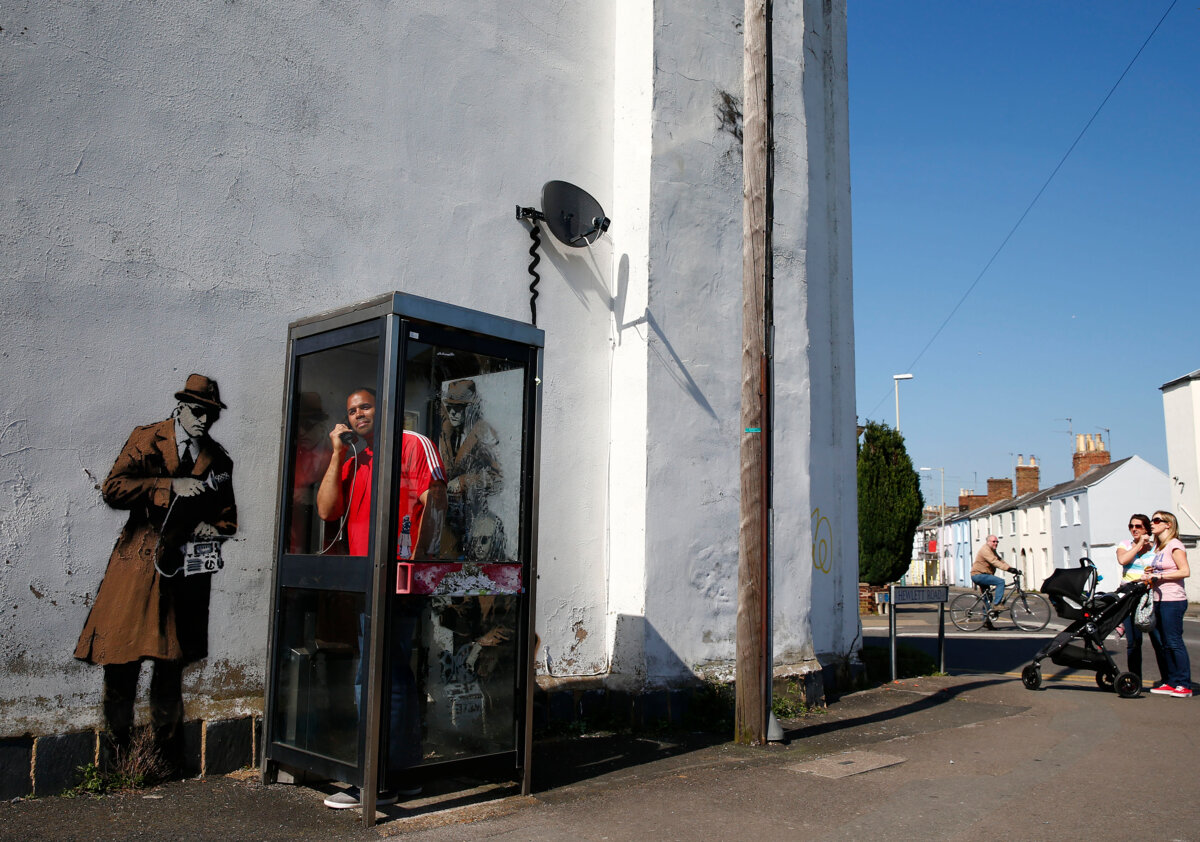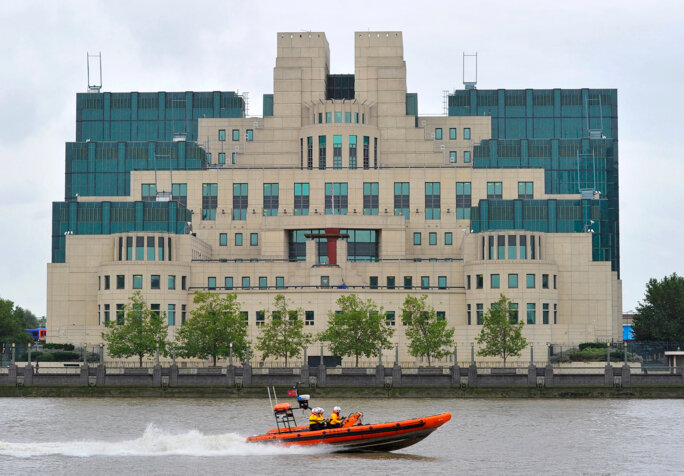They meet at least every week, and it was at one such occasion at the beginning of this year when officers from Britain’s domestic intelligence agency, MI5, raised with their French opposite numbers from the DGSI (Direction générale de la sécurité intérieure) their fears of seeing the intelligence cooperation between the two countries collapse after the withdrawal of the UK from the European Union (EU). The French side, Mediapart has learnt, were reassuring, insisting that whatever the vagaries of diplomatic and political relations after Brexit, the two agencies would continue to work hand in hand.
“Whatever the tensions, notably with the United Kingdom following Brexit, cooperation in the fight against terrorism is exemplary,” said French interior minister Christophe Castaner at a hearing on October 8th before the law commission of the French lower house, the National Assembly, in an answer to questions about the terrorist attack at the Paris police headquarters five days earlier in which four police staff died.
Paris is a familiar place for British intelligence. Each of the four services has a representation stationed in the French capital; MI5 and the foreign intelligence agency MI6, the signals intelligence unit GCHQ, and the London Metropolitan Police’s Counter Intelligence Command, also called SO15. They meet regularly with both the DGSI and the French foreign intelligence agency, the DGSE. In one report to the french presidential office, the Élysée Palace, the DGSI spoke of the bilateral cooperation as being of “excellent quality”, and lauded “fructuous relations” between the different agencies.
Earlier this year, British daily The Times reported that Alex Younger, head of MI6, and his MI5 counterpart, Andrew Parker, were both asked to prolong their expected time in the posts in order to steer Britain’s intelligence services through the upheaval of the Brexit process, which would make Younger the longest-serving MI6 chief since more than 40 years.
Historically, the British services have long been regarded with a certain caution by their European partners who believe them to cooperate much closer with US agencies like the CIA and FBI, notably through the so-called “Five Eyes’ anglophone intelligence alliance that, created shortly after WWII, groups together the spy agencies from the US, the UK, Australia, Canada and New Zealand. Among the revelations made by Edward Snowden, the former contractor for the US National Security Agency who turned whistleblower in 2013, was how the Five Eyes system had been spying on the affairs of a number of EU states.

Enlargement : Illustration 1

But a notable rapprochement between the French and British agencies came about following the November 13th 2015 terrorist attacks in Paris for which the so-called Islamic State (IS) group claimed responsibility. The members of the terrorist cell, led by Abdelhamid Abaaoud, prepared for the attacks in Syria, entered Europe via Greece, set up a logistics base in Belgium, and arrived in the Paris region the day before carrying out the massacres, which left 131 people dead and more than 400 wounded. A July 2016 report by a National Assembly commission of enquiry into the preparedness of the French security forces before those attacks noted that, “The terrorists no longer have any national logic, neither in their profiles or their recruitment, nor their operating mode or the conceiving of their attacks”.
Mohammed Emwazi became one of the most notorious British jihadists, dubbed “Jihadi John” by the media (he was part of a four-man cell within the IS who, because of their English accents, were nicknamed by hostages as “The Beatles”), appearing on videos slitting the throats of Western captives. In a DGSE report, Emwazi and Abdelhamid Abaaoud, who had Belgian nationality, were described as “operational managers” who were in charge of training future terrorist operatives and also their follow-up once they were sent out against targets. At the time of the November 13th 2015 Paris attacks, Emwazi had been planning a separate one in Britain, but on November 12th he was killed in the Syrian town of Raqqa in a missile strike from a anti-IS coalition drone.

Enlargement : Illustration 2

Mohamed Abrini, also a Belgian national, was involved in the logistical preparations for the November 2015 Paris attacks, and was filmed on CCTV alongside two suicide bombers inside Brussels airport in Zavantem minutes before they blew themselves up there on the morning of March 22nd 2016, killing 16 people and wounding dozens more. Abrini decided at the last minute not to detonate his suicide bomb and was identified on CCTV footage leaving the airport shortly after. He was finally arrested by Belgian police in April 2016.
During the summer of 2015, and three months before the Paris attacks, Abrini, who had just left Syria, travelled to Britain via Istanbul, outwardly appearing as a sightseeing tourist. He went shopping in London, and travelled to Manchester where he had himself photographed at football club Manchester United’s stadium of Old Trafford. His visit, which included a trip to Birmingham where he photographed different locations, notably the rear of the city's busy New Street railway station, became the subject of an investigation by West Midlands police counter-terrorism branch.
As illustrated by these examples, it was only to be expected that British intelligence became an important counter-terrorism partner for the French, and information provided by them facilitated the identification of several jihadists involved in the November 2015 attacks in Paris, and their background. Meanwhile, the British spy agencies succeeded in infiltrating IS (see Mediapart’s report on how IS hunted a suspected mole among the jihadist group in Syria ).
The cross-Channel collaboration has continued despite occasional disasters. One of these was on June 17th 2016, when British intelligence informed their French counterparts that they had learnt of an imminent terrorist attack against a bar popular with lesbians in the Marais district in central Paris. The precise and credible information was given as the European Football Championship tournament was underway in France, and five days after a jihadist shooting attack on a gay nightclub in Orlando, Florida, when 49 people were killed. The British had warned the French to be careful in how they used the information, given that their source in Syria was already under suspicion from the IS internal spy organisation, the Amniyat. The French sent undercover police officers on a surveillance mission close to the bar, but found no trace of terrorist suspects. Meanwhile, the British were to inform the French that their source had suddenly ceased all further communication.
Nevertheless, France’s DGSI and Britain’s Joint Terrorism Assessment Centre, JTAC, (an organisation of government departments and agencies, based at MI5 headquarters, which assesses intelligence on terrorist threats at home and abroad) continued to meet and exchange information notably on the subject of IS, its structure planning terrorist attacks outside Syria, and also on the IS propaganda machine. But beyond this, they cooperate on the threat on continents outside Europe, and the activities of diverse terror groups in Asia and Africa in particular.
While MI5 offers the French its evaluations on the operating modes of terrorists, MI6 provides information on those identified as planning attacks in France or against French interests abroad. The cooperation prompted a confidential DGSE report in September 2015 warning that “Information indicates the planning [of terrorist attacks] in France by operatives based in Great Britain”, and which were reportedly to be of a similar nature to those launched against the Paris offices of the satirical weekly Charlie Hebdo and the Jewish kosher store, Hyper Casher, in January of that year.
Britain was the target of a new series of terrorist attacks in 2017, beginning on March 22nd when Khalid Masood drove his car into pedestrians on London’s Westminster Bridge, killing four and injuring more than 50 others, before crashing it into a perimeter fence beside the Houses of Parliament where, before he was shot dead, he fatally stabbed a police officer.
That was followed, on May 22nd, with an attack by suicide bomber Salman Ramadan Abedi who detonated his homemade explosive device among people leaving an Ariana Grande concert at the Manchester Arena. The blast killed 22 people and wounded another 139. On June 3rd, three men – Khuram Shazad Butt, Rachid Redouane and Youssef Zaghba – carried out an attack on London Bridge ramming their vehicle into pedestrians before heading into Borough Market on a stabbing spree. They killed eight people, including three French citizens, and wounded 48 others.
Also in London, on August 25th Mohiussunnath Chowdhury attacked police outside Buckingham Palace with a samurai sword. On September 15th, a crude explosive device partially detonated on a crowded London tube train at Parsons Green station, leaving 51 wounded. Teenager Ahmed Hassan was later arrested and convicted of carrying out the attack.
Two of the five attacks were perpetrated by individuals known to the British intelligence services but were no longer under surveillance, which is the case of an estimated 20,000 other jihadist supporters in Britain. That situation demands significant efforts in the detection and evaluation of threats they pose, or may pose.

Enlargement : Illustration 3

It became the turn for the French intelligence services – which, following the series of terrorist attacks in France have made notable progress in their knowledge of jihadist networks operating in the country – to provide help to their British counterparts in identifying accomplices of those who carried out attacks in Britain, in an effort to foil further atrocities.
But this cooperation goes beyond the jihadist threat. The two countries share intelligence on the ultra-left, the No Border network of anti-migration control groups, the New IRA, and the far-left militants who joined Kurdish forces fighting the IS group in Syria. But above all, they exchange on the resurgence of high tensions with Russia, what might be called a new Cold War. It has for long been a focus for the British, but all the more so since the poisoning of double agent Sergei Skripal and his daughter Yulia with the nerve agent Novichok in Salisbury on March 4th 2018. Skripal, a former Russian intelligence officer, was convicted and sentenced to 13 years in prison in Russia in 2006 for having passed information to MI6, and after he was released from jail in a spy-swap deal in 2010 he had settled in Salisbury.
The French-British cooperation passes largely through the framework of diverse EU agencies, and it is here that the concerns over Brexit arise. While the French intelligence services were reassuring towards their British counterparts regarding future cooperation, as set out in that aforementioned joint meeting at the beginning of this year, in reality they too have their fears over the relationships between the different European institutions and secret services in the aftermath of Brexit.
In a key speech at London’s Lancaster House on January 17th 2017, Britain's then-prime minister Theresa May set out her plan for the future relationship her government sought with the EU after the country left the bloc. “Our intelligence capabilities – unique in Europe – have already saved countless lives in very many terrorist plots that have been thwarted in countries across our continent,” she said during the address. “After Brexit, Britain wants to be a good friend and neighbour in every way, and that includes defending the safety and security of all of our citizens […] But I must be clear. Britain wants to remain a good friend and neighbour to Europe. Yet I know there are some voices calling for a punitive deal that punishes Britain and discourages other countries from taking the same path. That would be an act of calamitous self-harm for the countries of Europe. And it would not be the act of a friend. Britain would not – indeed we could not – accept such an approach.”
In a statement published in April this year on police and judicial cooperation in Europe in the event of a no-deal Brexit, the EU insisted that cooperation between the remaining 27 member states in “preventing and prosecuting crime and terrorism” would not change. It warned that in the case of no deal, the UK would not be part of the EU network of judicial and police cooperation, which includes the use of the European Arrest Warrant that speeds up what was a lengthy process in the case of extradition demands, adding: “The UK will be disconnected from all EU networks, information systems and databases; Judicial cooperation procedures will no longer be pursued in an EU framework; The UK will no longer be able to participate in EU Agencies. It will be a third country and will be treated as such.”
In a study entitled ‘The European Union’s struggle against terrorism’ published last year, Séverine Wernert, who works in the office of Britain’s EU Commissioner for the Security Union, Sir Julian King – who is in effect the EU’s chief of security affairs – referred to the case of Salah Abdeslam, a Belgian jihadist wanted by France for his alleged participation in the November 2015 terrorist attacks in Paris. After a European Arrest Warrant against him was issued by France, Belgium handed over Abdeslam in less than two months. That compared, she underlined, with the more than 10 years of extradition procedure necessary before Britain accepted to extradite Rachid Ramda to France, where he was wanted for – and finally convicted of – his involvement in the 1995 terrorist bomb attack on a train at the Paris underground station Saint-Michel, which left eight people dead and another 117 wounded.

Enlargement : Illustration 4

Wernert also underlined the interest for EU member states in the information cooperation system used in the Schengen Area, which is composed of states that have signed up to an agreement to remove automatic passport controls on their borders. This system – called the Schengen Information System, or SIS – is used to check whether a person crossing on outside borders has been identified by any EU state as wanted or dangerous. Since the 2015 terrorist attacks in France, the SIS has become what she called “one of the largest” police data banks anywhere in the world, containing 75 million files in 2016, and which was consulted on more than four billion occasions over the space of two years.
For Britain, which is not a member of the Schengen Area, the SIS data-share is an important security tool, and its different services consulted the files 539,000 times in 2017 alone. Meanwhile, since 2010, Britain’s use of the European Arrest Warrant saw it obtain the extradition of around 800 wanted suspects from other EU countries.
“The United Kingdom has proposed an EU-UK treaty on security which, after Brexit, would provide the necessary judicial framework for the mutual sharing of information for law enforcement, and also eventually the continuation of European arrest warrants,” said Sir David Omand, a former director of GCHQ, in an interview with Mediapart. If he appears reassuring in this, he does not deny that a no-deal Brexit would upset the present necessary exchange of information between Britain and its EU partners. This would notably concern the surveillance of suspects passing across national borders, which requires the coordination of different police agencies from other countries.
Mediapart understands that assurances have reportedly been given to British security services by its closest allies, which includes France, that they would consult the Schengen Area data system and that of Europol if asked by Britain in the event of exclusion from access to them after a no-deal Brexit.
Britain would however remain within two principal multilateral security cooperation bodies. One of these is the Club de Berne (Club of Bern), an intelligence-sharing forum between the spy agencies of the EU member states, Norway and Switzerland. It is based on a voluntary cooperation, with the exchange of secret information, experiences and opinions. Without being a part of EU institutions, the Club de Berne communicates information on terrorist threats to the EU’s Intelligence and Situation Centre, or IntCen.
Whatever the Brexit deal that is eventually finalised, Britain would also remain within the Counter Terrorism Group (CTG), an informal intelligence-sharing group of agencies from EU member states, Norway and Switzerland. Within it, Britain’s MI5 is also part of a smaller circle representing intelligence services from the ten European countries most affected by jihadist terrorist networks emanating from Syria and Iraq. The other nine agencies are France’s DGSI, Germany’s BfV, Belgium’s VSSE, the Netherlands’ AIVD, Spain’s CNI, Austria’s BVT, Sweden’s Säpo, Denmark’s PET and Norway’s PST.
In all the different branches of the CTG, the British intelligence services contribute the most information and analyses which, according to an assessment by the DGSI, gives them “an undeniable visibility and resonance in the European intelligence community”.
For David Omand, that situation will continue. “The United Kingdom would wish to continue to share with the EU IntCen strategic conclusions it has come to on major international issues, and to continue to exchange intelligence through existing arrangements under the Club of Bern, for example on the level of the threat represented by different terrorist organisations,” he said. “There is no reason for that to stop because of Brexit, since national security lies outside the terms of the Treaty on European Union.”
In France, the latest report by the parliamentary delegation for intelligence was more pessimistic. The report, dated April 2019, warned: “Whether the United Kingdom ratifies or not the agreement for leaving the European union, whether we are heading for a soft or hard Brexit, the future status as a third country will carry important consequences concerning the modes of British participation in the tools and authorities within the European area concerning freedom, security and justice.”
Despite the French concerns, and those expressed by some intelligence services, David Omand’s analysis is less fearful of the outcome, and this for pragmatic reasons. “When you work on questions of security, there exists a very strong common interest between nations,” he told Mediapart. “It is in no-one’s interest that that stops, even momentarily.”
-------------------------
If you have information of public interest you would like to pass on to Mediapart for investigation you can contact us at this email address: enquete@mediapart.fr. If you wish to send us documents for our scrutiny via our highly secure platform please go to https://www.frenchleaks.fr/ which is presented in both English and French.
-------------------------
- The French version of this report can be found here.
English version by Graham Tearse


